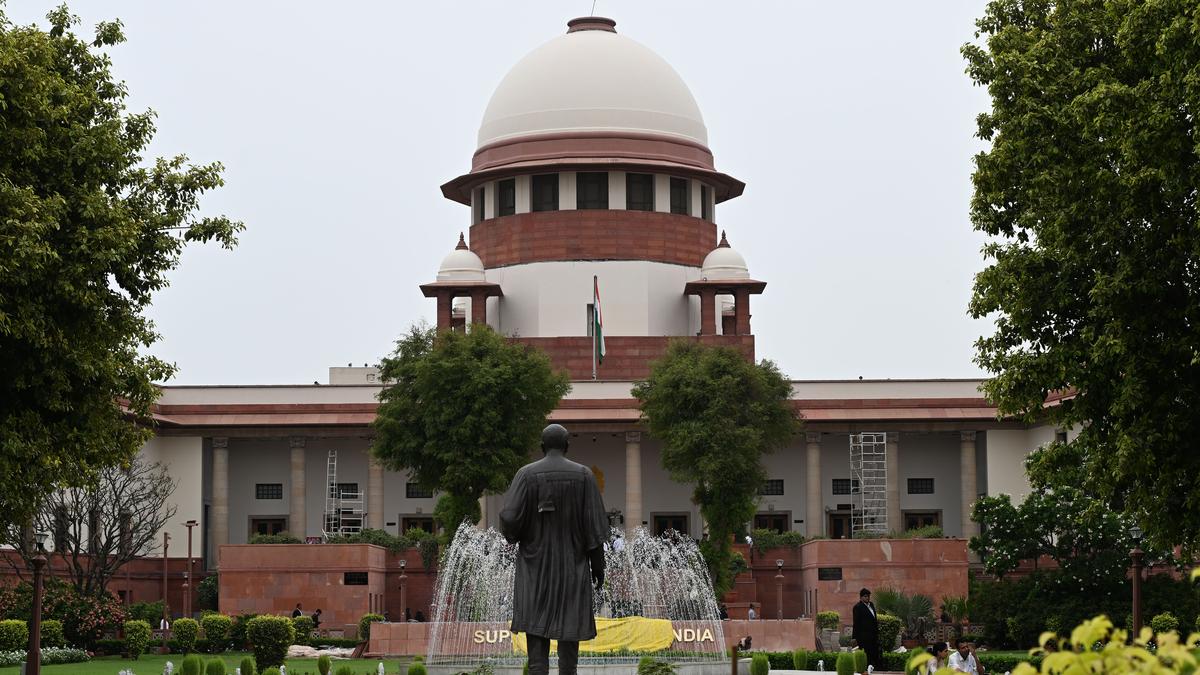 |
|
The Supreme Court of India, on January 30th, 2025, made a significant decision regarding the long-standing dispute between the Malankara Orthodox and Jacobite factions within the Malankara Church in Kerala. The court referred the matter back to the Kerala High Court for fresh adjudication, effectively overturning previous High Court orders that had directed the state administration and police to transfer the possession of six churches in Ernakulam and Palakkad districts from the Jacobite to the Orthodox faction. This decision stems from a deep concern expressed by the Supreme Court justices regarding the appropriateness of involving law enforcement in resolving religious disputes. The justices voiced unease about the precedent set by the High Court's use of police intervention to enforce the transfer of church properties, explicitly questioning whether such actions are justifiable and beneficial to public interests within a religious context.
A key legal question the Supreme Court framed for the High Court to consider revolves around the role of civil administration and law enforcement in religious conflicts. Specifically, the court asked whether a High Court has the authority to mandate the civil administration’s takeover of religious properties during disputes, and if so, to what extent this is in the public interest. This central issue underscores the court's apprehension about potentially exacerbating existing tensions through coercive measures. The implications of this legal question are far-reaching, as it directly impacts the balance between maintaining public order and preserving the autonomy of religious institutions during internal disagreements. This specific legal question highlights the court's attempt to balance the state's duty to uphold law and order with the need for respecting religious freedom and avoiding the appearance of state-sponsored religious interference.
The Supreme Court's decision also involves a thorough re-examination of previous judgments related to this long-running dispute. The court's directives to the High Court include clarifying the 'true import' of its own previous rulings in 2017 and 2020. These past judgments had sided with the Orthodox faction, ordering the transfer of various parish churches based on interpretations of the Malankara Church's 1934 constitution. By requesting this re-evaluation, the Supreme Court indicates a possible reconsideration of the way its previous decisions have been implemented, especially in light of the contentious nature of the enforcement process. This careful review demonstrates a willingness to revisit previous decisions, taking into account not just legal interpretations, but also the pragmatic considerations of resolving such a long-standing and complex religious dispute.
Beyond the core issue of church possession, the Supreme Court has tasked the High Court with addressing several other crucial aspects of the case. The High Court is mandated to determine the exact parties bound by previous Supreme Court decrees and to assess whether those decrees have reached finality. If not, the High Court must clarify what steps remain to be completed to resolve the dispute fully. Further complicating the matter is the impact of the Kerala Right to Burial of Corpse in Christian (Malankara Orthodox-Jacobite) Cemeteries Act, 2020, which the Supreme Court requires the High Court to consider in relation to pending contempt petitions. This consideration reflects the sensitivity of the issue, extending beyond mere church administration to include the handling of burial rights, a significant aspect of religious practices.
The ongoing contempt proceedings against state officials for failing to comply with earlier orders to hand over the churches adds another layer of complexity. The Supreme Court has instructed the High Court to review these contempt charges afresh, indicating a willingness to allow for a more holistic reassessment of the situation. The Supreme Court’s interim protection granted to state officials against personal appearances in the contempt proceedings underscores the court’s concern for procedural fairness while emphasizing the need for thorough investigation into past non-compliance. The court’s cautionary approach highlights the delicate balance it seeks to maintain between upholding its own past orders and mitigating the potential for escalating conflict during the process of re-examining past judgments and actions.
The historical context of this century-long dispute between the Jacobite faction, aligned with the Patriarch of Antioch in Syria, and the Malankara Orthodox faction, led by the Catholicos of the East, further complicates the matter. The deep-seated religious and historical roots of this conflict make a swift and simple resolution unlikely. The origins of the Malankara Church, tracing back to the presumed establishment in AD 52 by St. Thomas, underscore the weight of historical and religious significance attached to the various factions and their claims over church properties. This long-standing dispute, which affects not only the church administration but also the lives and beliefs of numerous individuals, demands a measured and thorough approach to ensure justice and reconciliation.
The Supreme Court’s decision to refer the matter back to the High Court, while simultaneously emphasizing the need for a reassessment of prior actions and a more nuanced approach to resolving religious disputes, signals a cautious yet hopeful path forward. The court's concern for preventing further escalation of tensions and its willingness to delve into the intricate details of the dispute suggest a desire for a truly just and sustainable solution that takes into account both the legal precedents and the deeply rooted religious sensitivities involved. The ultimate success of this renewed effort hinges on the High Court's ability to strike a balance between upholding the law and addressing the sensitivities of a deeply entrenched religious conflict, finding a resolution that respects both legal principles and the fundamental rights and beliefs of all parties involved.
Source: Supreme Court refers Malankara Orthodox-Jacobite row over churches to HC for fresh adjudication
